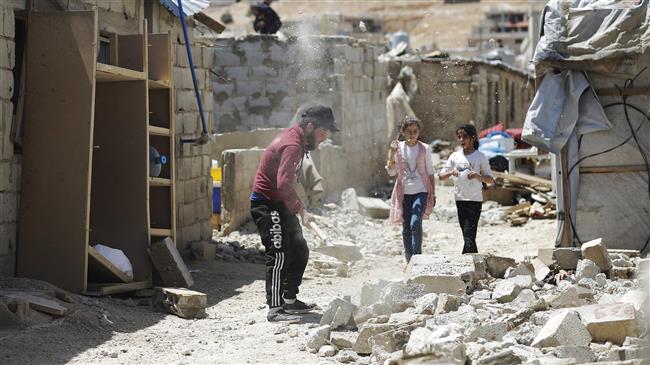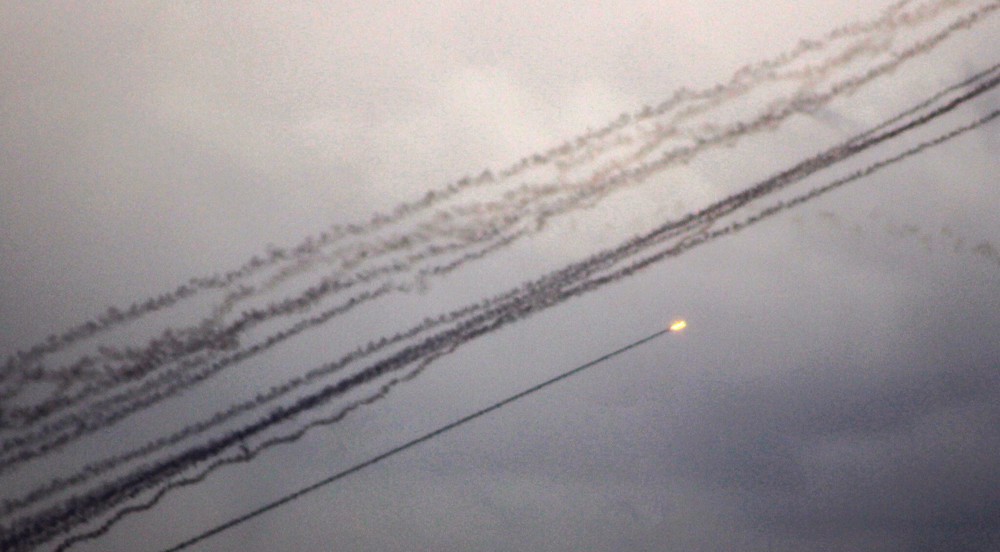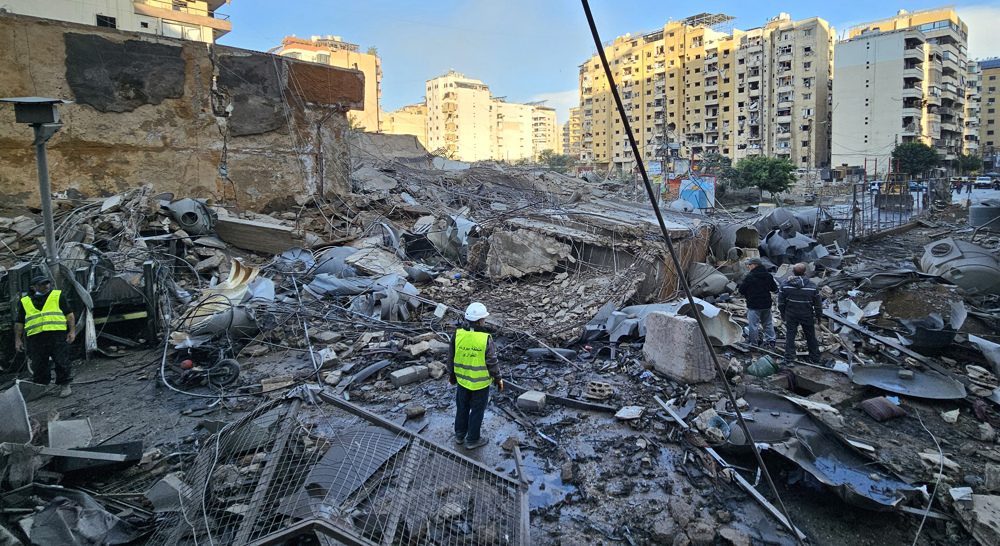Lebanese military demolishes Syrian refugee settlements in NE Lebanon: Aid groups
Lebanese military units have begun demolishing Syrian refugee settlements in northeast Lebanon following the expiry of a government ultimatum, a group of international aid agencies say, warning that the move could affect thousands of children.
“At 4:30 a.m. [local time] on July 1, military units moved into several camps in Arsal and demolished at least 20 homes,” said a joint statement by seven aid groups, including Save the Children, the Norwegian Refugee Council, and Oxfam, on Monday.
The aid groups also expressed their deep concern about the demolitions, saying they “fear that this is the start and more demolitions will take place tomorrow.”
According to the statement, an estimated 15,000 Syrian refugees, including at least 7,500 children, would be affected by demolitions of some 3,000 units.
Separately, Bassel al-Hujeiri, the head of the Arsal municipality, said that Monday’s demolitions had been very “limited” and impacted only huts made almost completely out of cement.
Beirut’s ultimatum of July 1 had prompted refugees to demolish their own shelters in the weeks leading up to the deadline, the statement said, adding that since June 27, less than half of the hard huts in Arsal had been demolished by their dwellers.
“Depriving refugees of their already very basic shelter and leaving them out on the streets is not a solution. The demolitions in Arsal come in the context of deteriorating conditions for Syrian refugees, who in the past months have faced an increasingly coercive environment making their lives even harder,” the statement added.
Lebanon, with a population of around 4 million, hosts some 1.5 million Syrian refugees. Facing a crisis-hit economy, Lebanon is toughening its enforcement of rules governing the refugees.
Beirut only allows building informal camps in a bid to prevent refugees from settling permanently.
Some Lebanese politicians have already called for mass returns of Syrian refugees to their homes after fighting and violence ended in many parts of the war-torn country over the past three years.
While some refugees have gone back to Syria, many others appear to be reluctant to return, with some citing fears of retribution or a fresh upsurge in violence and fighting.
VIDEO | Iran's president urges Pope to help end Israel's onslaught in Gaza
Iran Deputy FM: ICC arrest warrants ‘great victory' for Palestine supporters
Nov. 21: ‘Axis of Resistance’ operations against Israeli occupation
VIDEO | Israeli forces storm West Bank’s Jenin again, target civilians
Iran activates advanced centrifuges after IAEA's 'unjust' resolution
VIDEO | Press TV's news headlines
Iran FM: Response to Israeli aggression 'inevitable'
VIDEO | Iran eases the rules for exporting hand-woven carpets











 This makes it easy to access the Press TV website
This makes it easy to access the Press TV website